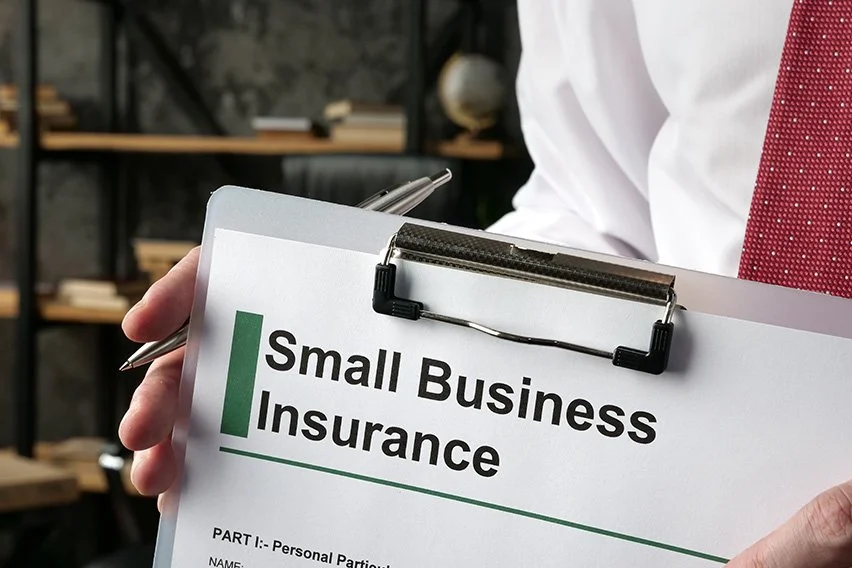Commercial Property Insurance for Small Businesses
Introduction
Starting and running a small business is a remarkable journey, filled with excitement, challenges, and countless responsibilities. One critical aspect that often gets overlooked is the protection of the business’s physical assets. This is where commercial property insurance becomes essential. This guide will explain what commercial property insurance is, why it is vital for small businesses, what it covers, and how to choose the right policy. Understanding these elements will help you make informed decisions to safeguard your business.
What is Commercial Property Insurance?
Commercial property insurance is a type of coverage designed to protect the physical assets of a business. These assets can include buildings, equipment, inventory, furniture, and fixtures. Essentially, it provides financial protection against loss or damage caused by various risks such as fire, theft, vandalism, and certain natural disasters.
For small business owners, this insurance is crucial. It ensures that, in the event of an unexpected incident, the financial impact is minimized, allowing the business to recover and continue operations with minimal disruption.
Why Commercial Property Insurance is Essential for Small Businesses
Financial Protection
One of the primary reasons to invest in commercial property insurance is financial protection. Small businesses often operate on tight budgets, and a significant loss could jeopardize the entire operation. For example, if a fire destroys your inventory, the cost of replacement can be overwhelming. Insurance helps cover these costs, ensuring your business can bounce back.
Business Continuity
Maintaining business continuity is another critical factor. Unexpected events like natural disasters or vandalism can halt your operations. Commercial property insurance helps cover the costs of repairs or replacements, so you can get back to business as usual quickly. This minimizes downtime and helps maintain your customer base.
Legal Requirements and Leasing Conditions
In many cases, commercial property insurance is a legal requirement. If you are leasing a space, landlords often require proof of insurance. This protects their property and ensures you can meet your lease obligations even if something goes wrong.
Peace of Mind
Finally, having commercial property insurance provides peace of mind. Knowing that your business assets are protected allows you to focus on growth and day-to-day operations without constantly worrying about potential losses.
What Does Commercial Property Insurance Cover?
Commercial property insurance policies can vary widely, but they generally cover the following:
Buildings and Structures
If you own the building where your business operates, the insurance will cover damage to the structure itself. This includes damages from fire, storms, theft, and vandalism.
Equipment and Machinery
Equipment and machinery are often some of the most valuable assets for a small business. Whether it’s computers, manufacturing equipment, or specialized tools, insurance can cover the cost of repair or replacement if they are damaged or stolen.
Inventory
For businesses that rely on inventory, such as retail stores or warehouses, this coverage is crucial. It protects against losses from events like theft or damage from fire or water.
Furniture and Fixtures
Items like desks, chairs, shelving, and lighting fixtures are also covered under commercial property insurance. This ensures that you can replace these items quickly if they are damaged.
Outdoor Signage and Landscaping
Some policies extend coverage to outdoor signage and landscaping, which can be essential for businesses that rely on physical appearance and branding to attract customers.
Loss of Income
Many commercial property insurance policies include business interruption coverage. This means that if your business has to close temporarily due to a covered event, the policy will compensate you for lost income during the downtime. This can be a lifeline for small businesses struggling to make ends meet after an incident.
Factors to Consider When Choosing Commercial Property Insurance
Selecting the right commercial property insurance involves careful consideration of several factors:
Assessing Your Risks
Firstly, assess the risks specific to your business and location. For instance, if your business is in an area prone to flooding, ensure your policy covers flood damage. Understanding your unique risks will help you choose a policy that offers the best protection.
Value of Assets
Calculate the total value of your business assets. This includes buildings, equipment, inventory, and furniture. Knowing the value helps ensure you have adequate coverage limits in your policy.
Policy Exclusions
Carefully read through the policy exclusions. These are events or damages that the policy does not cover. For example, many standard policies do not cover earthquake or flood damage without additional riders. Being aware of exclusions will help you avoid surprises when you file a claim.
Deductibles and Premiums
Consider the deductible and premium amounts. The deductible is the amount you must pay out of pocket before the insurance kicks in, while the premium is the cost of the policy itself. Balancing these costs is essential to ensure you can afford both the monthly premiums and the deductible if you need to file a claim.
Insurance Provider Reputation
Choose a reputable insurance provider with a strong track record of customer service and claims handling. Reading reviews and asking for recommendations from other business owners can help you find a trustworthy provider.
Customization Options
Look for policies that allow customization. Your business might have specific needs that a standard policy doesn’t cover. For instance, if you have unique or expensive equipment, you might need additional endorsements to ensure full protection.
Common Misconceptions About Commercial Property Insurance
There are several misconceptions about commercial property insurance that can lead to inadequate coverage or misunderstandings about the policy:
“My Homeowners Insurance Covers My Home-Based Business”
If you run a business from home, don’t assume your homeowners insurance will cover business-related losses. Most homeowners policies exclude business-related claims, so you need a separate commercial property policy to ensure coverage.
“All Disasters Are Covered”
Not all disasters are covered under standard commercial property insurance. Events like floods, earthquakes, and certain types of water damage often require additional coverage. Make sure to understand what your policy includes and add riders as necessary.
“I Don’t Need Coverage for Small Items”
Even small items can add up to significant losses. Office supplies, small equipment, and even furniture can be costly to replace. Ensuring all assets are covered can save you from unexpected expenses.
“I Only Need Basic Coverage”
While basic coverage might be cheaper, it may not be sufficient for your needs. Comprehensive coverage, including business interruption and additional endorsements for specific risks, can provide more robust protection.
Steps to File a Claim
Filing a claim can be a daunting process, especially during a stressful event. Here’s a step-by-step guide to help you through it:
Document the Damage
As soon as it’s safe, document the damage with photos and videos. This evidence is crucial for your claim.
Notify Your Insurer
Contact your insurance provider immediately to report the incident. Provide them with all necessary details and follow their instructions on the next steps.
Gather Supporting Documents
Collect any supporting documents, such as receipts, invoices, and inventory lists. These will help substantiate your claim and speed up the process.
Meet with the Adjuster
An insurance adjuster will likely visit your business to assess the damage. Be prepared to walk them through the site and provide any additional information they request.
Review the Settlement Offer
Once the adjuster has completed their assessment, the insurance company will make a settlement offer. Review this offer carefully to ensure it covers all your losses. If you believe the offer is insufficient, you can negotiate or seek a second opinion.
Receive Payment
Once you agree on the settlement, the insurance company will process your payment. This can take some time, so maintain open communication with your insurer throughout the process.
Tips for Reducing Commercial Property Insurance Costs
Insurance can be a significant expense for small businesses, but there are ways to reduce your costs:
Shop Around
Don’t settle for the first quote you receive. Shop around and compare policies from different providers to find the best rate and coverage.
Bundle Policies
Many insurance companies offer discounts if you bundle multiple policies, such as general liability and commercial property insurance.
Increase Deductibles
Opting for a higher deductible can lower your premium. Just ensure you can afford the out-of-pocket costs if you need to file a claim.
Improve Security
Investing in security measures like alarm systems, surveillance cameras, and secure locks can reduce the risk of theft and vandalism, which may lower your premium.
Maintain the Property
Regular maintenance, such as updating electrical systems and addressing potential hazards, can prevent accidents and reduce your risk profile, potentially lowering your insurance costs.
Conclusion
Commercial property insurance is a vital safeguard for small businesses, protecting against financial losses due to unexpected events. By understanding the coverage options, assessing your risks, and choosing a reputable provider, you can ensure your business is well-protected. Additionally, being aware of common misconceptions and knowing how to file a claim can help you navigate the insurance landscape more effectively. Ultimately, investing in the right commercial property insurance policy provides peace of mind, allowing you to focus on growing your business and achieving long-term success.
By taking these steps and making informed decisions, you can protect your business assets, ensure continuity, and build a strong foundation for future growth. Remember, the key to effective insurance is not just having a policy but having the right policy that meets your specific needs and offers comprehensive protection.






